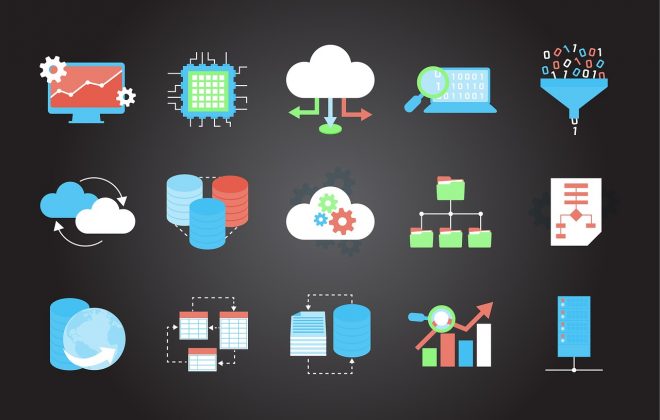Why It Is Now (Even More) Necessary to Build a Chatbot For Your Hospital
No doubt, the healthcare industry needs humans to provide empathetic care that the patients need. It seems rather unsettling at first to think about chatbots and conversational AI in healthcare.
But we do come across multitudes of benefits (if and when) we look closer.
According to Juniper Research, chatbots will facilitate annual savings of $3.6 Bn by 2022, globally. Furthermore, Zion Market Research predicts that the market is currently valued at $ 123 Bn. Between 2019 to 2025, the market is estimated to rise to 475 Bn at a CAGR of 21.2%. Chatbots can be used to improve health outcomes and streamline care processes in healthcare institutions.
Here are a few ways how:
- Automate patient outreach –Chatbots can help healthcare organizations save potentially millions of dollars in labor and other costs by automating the process of patient outreach, appointment booking, and reminders.
- Patient engagement –Hospitals and clinics can use chatbots to engage customers and increase awareness about their offerings, services, patient health, and so much more.
- Prescription drug information –Patients often spend a significant amount of time researching about the drugs they are prescribed. A chatbot can bring this information to patients seamlessly.
- Patient compliance – Healthcare organizations can generate reminders to patients and help them in medication adherence and follow compliances.
- Medical equipment support –Not all patient queries are related to medication or health symptoms. Sometimes, patients need information regarding the equipment they use, and a chatbot can make that information available to them quickly.
Chatbots benefits in healthcare
There are several use cases for the use of chatbots in healthcare, including:
- Ongoing health monitoring –For customers facing complex medical conditions, it is critical for healthcare organizations to be accessible to them 24/7 while continuously monitoring their health. Chatbots and voice assistants can help hospitals replace or minimize the need for human attention in these cases.
- Information access –In critical cases where every passing moment in a matter of life and death, healthcare organizations can make information accessible through a chatbot. Fifty-seven percent of consumers are interested in chatbots because of instant responses.
- Gaining patient trust –The round-the-clock availability, accessibility, and speed of conversation with chatbots makes them a value-addition to any hospital, this increasing patient trust in them.
These and more benefits can be realized by the effective use of chatbots in healthcare.
Why chatbots are necessary and viable now more than ever
Digital savvy consumers –Customer expectations are rising. Customers demand better experiences across various touchpoints. Moreover, the proliferation of remote care delivery has made the integration of technologies even more imperative. Healthcare institutions today are compelled to digitize processes if they are to stand their market share. Today’s modern consumer prefers self-service over conversations on phone or email.
Healthcare consumerism –Consumerism in healthcare is another reason why chatbots are now more viable and necessary than ever. The decades-long notions of the healthcare industry are now coming to the ground as patients are choosing their providers and making informed decisions. Today, patients want to be invested in their health, want to be always connected with their care providers, and want their questions answered quickly. If you are to appeal to the newer generations, you need to offer experiences that increase the value of your services.
The proliferation of technology –Technology leverage is not an option anymore. Just like in any other industry, the healthcare space needs to utilize technologies such as AI, mobility, ML, and AR/VRto bring better patient outcomes and meet their needs proactively. There is a wider opportunity gap in implementing AI that awaits recognition. And, any healthcare organization ready to leverage the latest tech will get an early bird advantage in the marketplace.
Increasing aging population and reducing doctor-patient ratio –The skilled workforce is shrinking in the healthcare space, and there is a growing aging population which needs quality care and improved services. This gap has made it possible and necessary for healthcare organizations to implement chatbots and other similar technologies to reduce the dependency on human resources where tasks can be easily automated.
Need to provide high-quality care at reduced costs – Making high-quality care available affordable still stays a priority in the healthcare industry. By leveraging chatbots, organizations can slash operational costs and bring valuable outcomes of their patients cost-effectively. Technology helps increase the scale of operations and make processes available in real-time. According to a report by Frost & Sullivan, AI has the potential to improve outcomes by 30-40 percent and slash the cost of treatment by as much as 50 percent.
Increased focus on patient experience –Patient experience is now a major differentiator between healthcare providers. This is the first and foremost reason why providers are focusing on improving the patient experience by empowering them with access to important information and applications from anywhere at any time.
With the demand for real-time conversations and patients’ expectations of providers to proactively meet their needs, healthcare organizations can use chatbots to deliver quality care at reduced costs and achieve patient satisfaction.
Being attentive to customer needs and addressing their challenges can be your game-changing strategy this year! By 2025, 90 percent of US hospitals will use AI to save lives and improve the quality of care they provide.
Be it appointment scheduling, compliances, connectivity, support, coverage and claims, care management, or diagnosis, an AI-powered chatbot can make all the difference to your turnaround time, cost, and availability to your patients. Are you ready to transform your hospitals?




